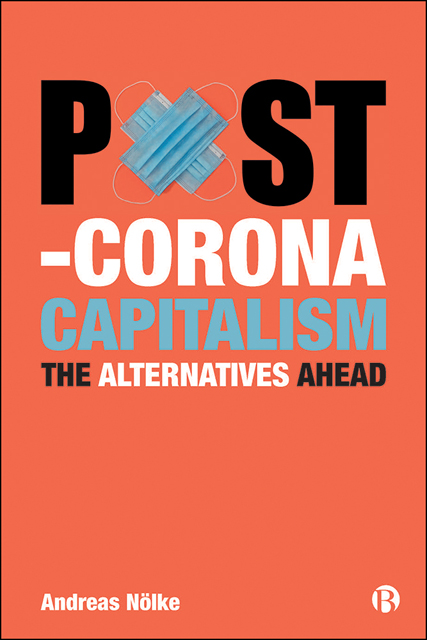Book contents
- Frontmatter
- Dedication
- Contents
- List of Abbreviations
- Acknowledgements
- Preface
- 1 Introduction: Confronting a Multidimensional Crisis of Capitalism
- Part I Capitalism and Society
- Part II Domestic Institutions of Capitalism on the Demand Side
- Part III Domestic Institutions of Capitalism on the Supply Side
- Part IV The International Institutions of Capitalism
- Part V Anthropocene Capitalism
- Part VI Geo-economic Shifts in Global Capitalism
- Part VII Ideologies in Contemporary Capitalism
- References
- Index
27 - China– US Struggle for Global Economic Hegemony: Contender or Incumbent?
Published online by Cambridge University Press: 13 October 2022
- Frontmatter
- Dedication
- Contents
- List of Abbreviations
- Acknowledgements
- Preface
- 1 Introduction: Confronting a Multidimensional Crisis of Capitalism
- Part I Capitalism and Society
- Part II Domestic Institutions of Capitalism on the Demand Side
- Part III Domestic Institutions of Capitalism on the Supply Side
- Part IV The International Institutions of Capitalism
- Part V Anthropocene Capitalism
- Part VI Geo-economic Shifts in Global Capitalism
- Part VII Ideologies in Contemporary Capitalism
- References
- Index
Summary
The coronavirus pandemic emerged in a historical situation where the political relations between China and the US, not only the two largest economies, but also the contenders for global economic hegemony, grew increasingly tense. The pandemic has put fuel onto the fire of this rivalry. While the US blamed China to be responsible for the emergence of the pandemic and for undue influence in the WHO, China used its early economic recovery to strengthen its ties to countries globally. How will the pandemic influence the balance of power between these two economies?
The struggle for global order and International Political Economy scholarship
During the last two decades, much International Political Economy scholarship has studied the emerging economic rivalry between China and the US, even if it did not yet find much reflection in the major textbooks. While the discussion during the 2000s mainly focused on the question whether the rise of China would be aggressive or peaceful, it increasingly turns to the question of the stability of the US-led liberal global order during the 2010s. During the first debate, the core contenders were ‘power transition theory’ and ‘offensive realism’ on the one side, arguing that the rise of China would lead to military conflicts, and liberal as well as constructivist scholarship on the other side, predicting that this conflict can be avoided, due to economic interdependencies and the socialization of China into a cooperative behaviour (Nölke, 2015: 657–8). The second debates focused on the challenges that China poses for the US-led ‘Liberal International Order’ (LIO). The latter order has been created by the West under US leadership after the Second World War, in order to contain the expanding Soviet Union. Core pillars were the support of free trade and of transnational capital mobility, as well as international organizations such as the WB and the IMF (and the more general principle of multilateralism); it also contained more political aspects such as the spreading of democracy and the support of human rights. Over time, it has increased its intrusiveness; for example, with regard to the promotion of human rights, the supranational order of the International Criminal Court or the structural adjustment programmes of the WB and the IMF (Kreuder-Sonnen and Rittberger, 2020: 5–8; Lake et al, 2021: 226–34).
- Type
- Chapter
- Information
- Post-Corona CapitalismThe Alternatives Ahead, pp. 169 - 173Publisher: Bristol University PressPrint publication year: 2022



